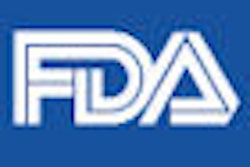Delivery of cancer care in the U.S. is facing a crisis stemming from a combination of factors -- a growing demand for such care, a shrinking oncology workforce, rising costs of cancer care, and the complexity of the disease and its treatment, according to a new report from the Institute of Medicine (IOM).
The report recommends ways to respond to these challenges and improve cancer care delivery, including by strengthening clinicians' core competencies in caring for patients with cancer, shifting to team-based models of care, and communicating more effectively with patients.
Changing demographics will place new demands on the nation's cancer care delivery system, as the number of adults older than 65 -- the segment of the population that accounts for most cancer diagnoses -- rapidly increases, the report stated. In the U.S., more than 1.6 million new cases are diagnosed each year; by 2030, cancer incidence is expected to rise by 45% to 2.3 million new diagnoses per year.
Adding to stresses on the system is the complexity of cancer and its treatment, which has grown in recent years with the development of new therapies targeting specific abnormalities often present only in subsets of patients. Given the disease's complexity, clinicians, patients, and patients' families can find it difficult to formulate care plans with the necessary speed, precision, and quality; as a result, decisions about cancer care are often not sufficiently evidence-based.
Another challenge is the cost of cancer care, which is rising faster than other sectors of medicine, having increased from $72 billion in 2004 to $125 billion in 2010, according to the IOM. At the current rate, it will increase another 39% to $173 billion by 2020. And the single largest insurer for those older than 65, the Centers for Medicare and Medicaid Services (CMS), is struggling financially.
The report recommends strategies for improving the care of cancer patients, grounded in six components of high-quality cancer care. The components are ordered based on the priority level with which they should be addressed:
Engaged patients: The cancer care system should support patients in making informed medical decisions that are consistent with their needs, values, and preferences. Cancer care teams should provide patients and their families with understandable information about the cancer prognosis and the benefits, harms, and costs of treatments. The National Cancer Institute, CMS, and other stakeholders should improve the development and dissemination of this critical information, using decision aids when possible.
An adequately staffed, trained, and coordinated workforce: New models of team-based care are an effective way to promote coordinated cancer care and to respond to existing workforce shortages and demographic changes. And to achieve high-quality cancer care, the workforce must include enough clinicians with essential core competencies for treating patients with cancer. Professional organizations that represent those who care for patients with cancer should define these core competencies, and organizations that deliver cancer care should ensure their clinicians have those skills.
Evidence-based cancer care: Clinical research should gather evidence of the benefits and harms of various treatment options so that patients and their cancer care teams can make more informed treatment decisions. Research should also capture the impacts of treatment regimens on quality of life, symptoms, and patients' overall experience with the disease. Additional research is needed on cancer interventions for older adults and those with multiple chronic diseases.
A learning healthcare information technology system for cancer care: A system is needed that can "learn" by enabling real-time analysis of data from cancer patients in a variety of care settings to improve knowledge and inform medical decisions. Professional organizations and the U.S. Department of Health and Human Services (HHS) should develop and implement the learning healthcare system, and payors should create incentives for clinicians to participate as it develops.
Translation of evidence into practice, quality measurement, and performance improvement: Tools and initiatives should be delivered to help clinicians quickly incorporate new medical knowledge into routine care. And quality measures are needed to provide a standardized way to assess the quality of cancer care delivered. These measures have the potential to drive improvements in care, inform patients, and influence clinician behavior and reimbursement.
Accessible and affordable cancer care: Currently, there are major disparities in access to cancer care among individuals who are of lower socioeconomic status, are racial or ethnic minorities, lack health insurance coverage, and are older. HHS should develop a national strategy that leverages existing community interventions to provide accessible and affordable cancer care, the report stated. To improve the affordability of care, professional societies should publicly disseminate evidence-based information about cancer care practices that are unnecessary or in which the harm may outweigh the benefits. CMS and other payers should design and evaluate new payment models that incentivize cancer care teams to provide care based on the best available evidence and that aligns with their patients' needs.



















